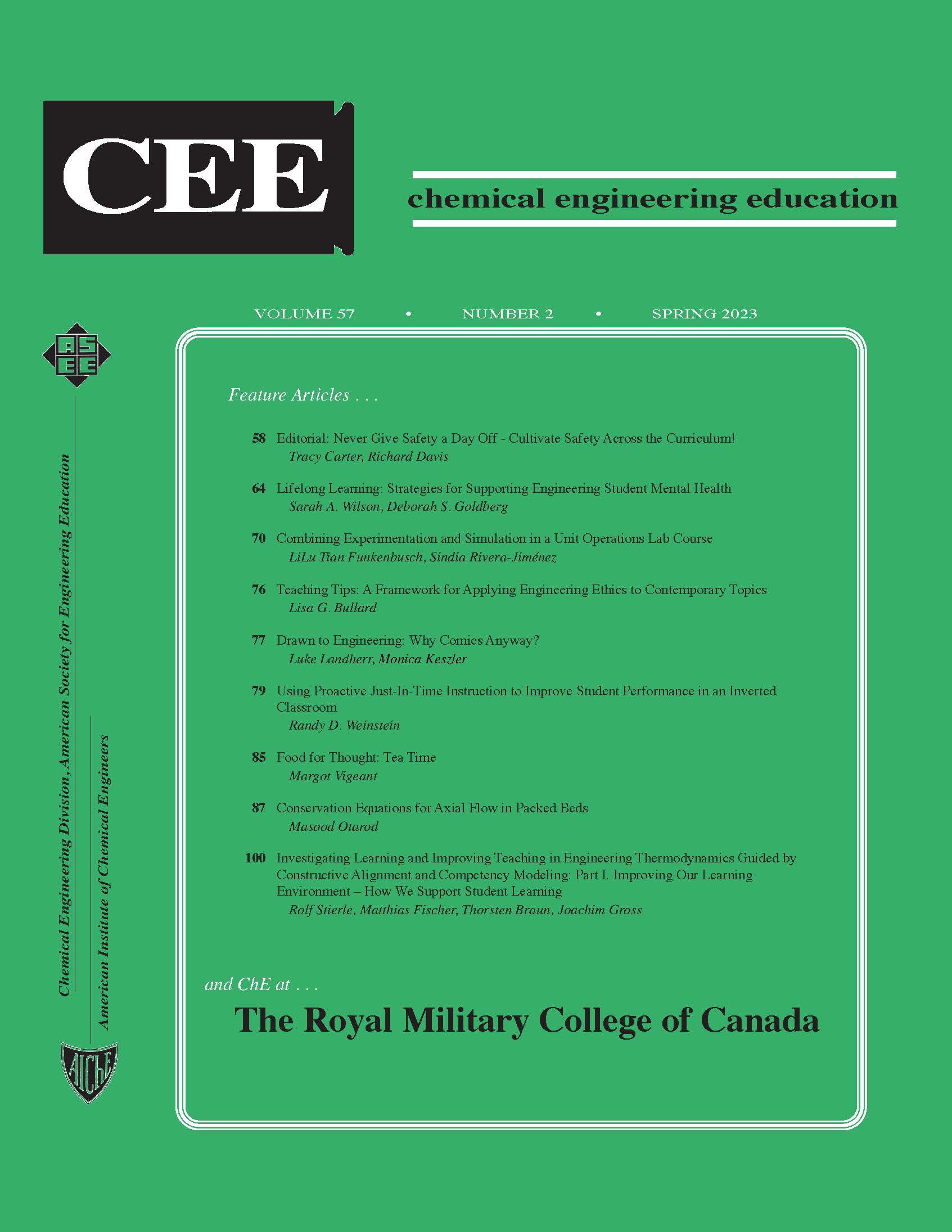Investigating Learning and Improving Teaching in Engineering Thermodynamics Guided by Constructive Alignment and Competency Modeling
Part I. Improving our Learning Environment - How We Support Student Learning
DOI :
https://doi.org/10.18260/2-1-370.660-126287Résumé
How is it possible to create and continuously improve a quality learning environment for our students? We present our one-year course on engineering thermodynamics as a case study in which we investigate the learning environment based on a competency model from the students' perspective. Based on the analysis of our course structure and exam design, as well as a survey among students on their learning preferences, we propose several strategies to support student learning.
Téléchargements
Publié-e
2023-03-21
Numéro
Rubrique
Manuscripts


